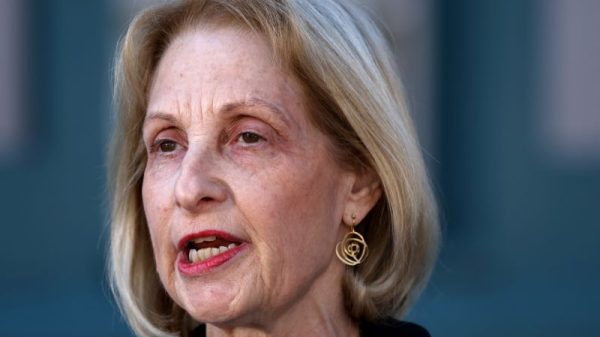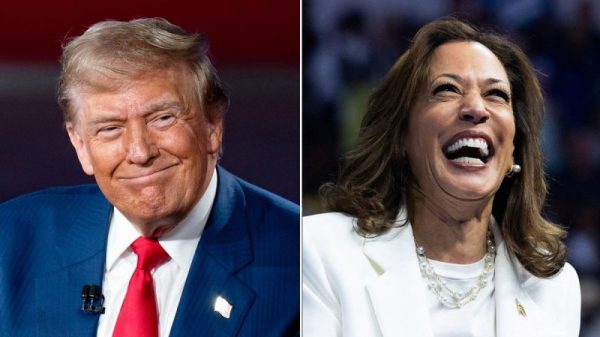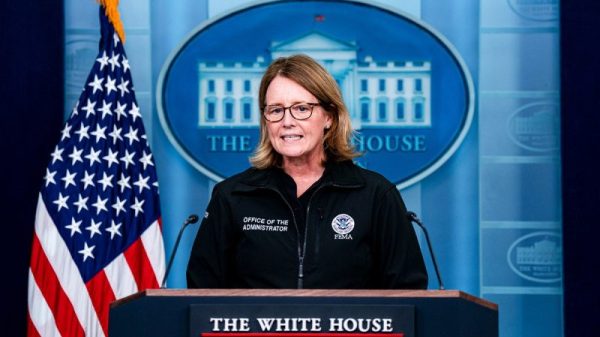Kamala Harris is a lifelong liberal with a health care platform to the left of Barack Obama and Hillary Clinton combined. She promised that ‘Medicare-for-all is our goal’ and committed to abolish private health insurance in favor of a government-run plan.
Learning from Obama about the utility of lying to voters before you take away their health plans, she first allowed a limited exception for Medicare Advantage plans and more recently denied her previous positions.
Make no mistake: Her radical ideas would put the government in charge of health care instead of doctors.
First, forcing everyone onto a government-run plan is like unleashing the bureaucracy of the DMV onto our health care sector, obliterating choice and competition. It forces 150 million Americans off their insurance, making workers give up popular plans provided by employers and unions. It ends the Medicare program for seniors, and ends private coverage for 30 million seniors with Medicare Advantage and 22 million seniors who supplement traditional Medicare coverage.
Second, ‘Medicare-for-all’ requires unsustainable new spending. Claims that it saves taxpayer dollars were so egregious that even the left-leaning Washington Post gave them three Pinocchios. The program’s costs would range from $32.6 trillion to $44 trillionover a decade. This is an estimate of new spending – notwithstanding the Medicare trust funds that would be liquidated to fund ‘Medicare-for-all.’
Third, even with this astronomical new spending, ‘Medicare-for-all’ requires significant reductions in already low payments to doctors, nurses, hospitals and nursing homes, cutting $5.3 trillion over a decade. Providers would no longer be able to shift costs from Medicare to private payers, and could thus face 40% reductions from private insurance rates. Experts estimate this could result in 1.5 million job losses within the hospital sector.
America is already facing an expected shortage of as many as 95,000 doctors and 63,00 full-time nurses by 2030. Shifting to ‘Medicare-for-all’ will only exacerbate these shortages and hurt patients, similar to how other single-payer systems have failed their citizens.
Fourth, taxpayers would be on the hook for the increased costs even as Americans receive fewer care options. All businesses would be required, at minimum, to double their payroll taxes, which ultimately hits low-income workers the hardest.
‘Medicare-for-all’ requires a plethora of additional taxes – ending the tax exclusion for health expenditures, ‘one-time’ taxes on businesses, new fees on financial institutions, new taxes on the wealthy, new estate taxes, and the list goes on. Harris has the audacity to say her plan will exempt those making under $100,000 from new taxes.
Rather than increasing the true affordability of health care, ‘Medicare-for-all’ would leave families worse off, diminishing the average annual disposable income of a family on private insurance by $10,554.
Fifth, promises of increased health care spending in single-payer systems have generally failed to achieve a higher quality of care. In countries like the United Kingdom and Canada, where there is coverage on paper but not in practice, patients are on year-long waiting lists, deprived of drug coverage, even basic drugs, and run to private insurance to get care. When a Canadian provincial government passed a prohibition on private health insurance, the Supreme Court struck it down, effectively saying that Canadians have a right to health care, not a right to waitlists.
In the United States, Medicaid expansions have tested the effect of unlimited, cost-free, government-run health care coverage. While studies find beneficiaries were able to access more providers or get financial assistance, the studies are more negative about the program’s ability to improve health outcomes. One found the program ‘generated no significant improvement in measured physical health outcomes,’ and another found that states that did not adopt Medicaid expansion had better mortality trends than those that did.
Sixth, the one-size-fits-all ‘Medicare-for-all’ model doesn’t fit the unique needs of 330 million Americans. Other government-run health care systems block patient access to drugs until the government agrees on a price. When Vertex announced approval for their breakthrough treatment for cystic fibrosis, it took four years for British patients to get access.
If Harris bans other payers or options for private care, there will be no release valve for patients to get care. Government-run health care sacrifices tomorrow’s innovations for today’s budget controls, with one CEO saying that they can no longer prioritize ‘innovation unfriendly’ Europe.
Seventh, ‘Medicare-for-all’ promises to cover all individuals, using taxpayer funds to pay for health coverage for illegal immigrants. Recent projections estimate the cost would be $1.8 trillion over 10 years. Obama promised taxpayer funds would not subsidize health care for illegal immigrants, but the Biden-Harris administration has given states ObamaCare and Medicaid waivers to use tax dollars to pay for this care.
Harris and her fellow radical Democrats are the only people who think the problem with ObamaCare was that it did not do enough to raise taxes, increase government spending, and kick Americans off their health plans. Voters should believe her when she told them she intends to do more of all three.
Hannah Anderson is the director of the Center for a Healthy America at the America First Policy Institute.
































